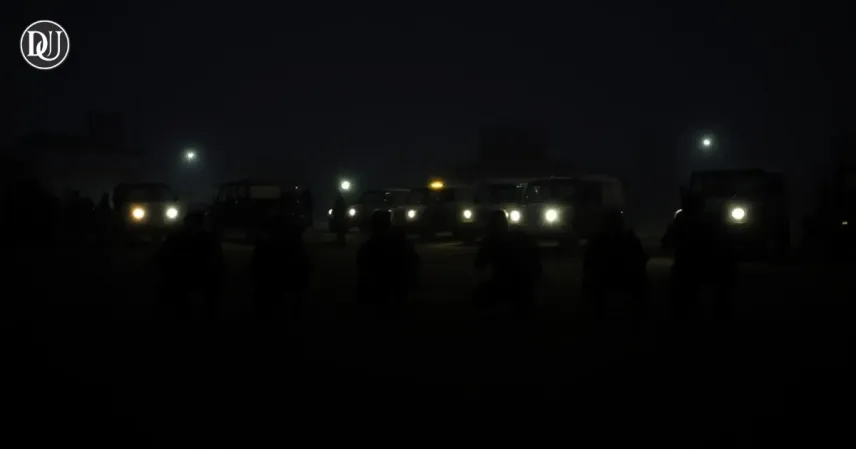For many families living near the India-Pakistan border, May 8 started just like any other day. Kids getting ready for school. Farmers heading out to their fields. Shopkeepers lifting shutters. But by mid-morning, sirens wailed, power was cut, and the skies filled with tension.
Pakistan launched a wave of drone and artillery attacks targeting key areas in Jammu and Punjab. One of the first targets: Jammu airport — a major hub and symbol of India's defense presence in the region.
Suddenly, routine turned into chaos.
India Responds: Calm Under Fire
As explosions echoed and warning sirens rang through the air, India’s military swung into action. Air defense systems were activated. Fighter jets scrambled. Command centers buzzed with orders.
But through it all, what stood out was the calm, methodical response of Indian forces. No panic. No hesitation. Just a focused determination to defend and protect.
Civilians were guided to safety. Entire towns went dark as power was cut to avoid being targeted — a precaution rooted in bitter past experiences.
Homes Shaken, Hearts Strong
For people in Jammu, Samba, and parts of Amritsar, it wasn’t just about missiles or airspace—it was about their lives. Mothers held children close. Elders recalled stories from wars past. Shopkeepers closed early, unsure of what might happen next.
Yet, through fear, there was strength. Communities supported one another, and local authorities moved swiftly to provide assistance and communication.
It’s in moments like these that the real courage of ordinary people shines through.
Operation Sindoor: A Message of Strength
India didn't just defend — it responded. Under Operation Sindoor, targeted airstrikes were launched against terrorist infrastructure across the border. It wasn’t about revenge, but neutralizing threats that endangered Indian lives.
The strikes were strategic, focused, and executed with minimal risk to civilians — a clear signal that India is prepared to act with strength and responsibility.
The Bigger Picture: Peace Still Matters
While the border may be tense, the desire for peace remains strong — in the hearts of citizens on both sides. War benefits no one. It tears apart families, communities, and futures.
But security is non-negotiable. India’s actions reflect a nation that values peace, but will never back down when threatened.
What’s Next? Eyes on Dialogue and Defense
Right now, the situation remains sensitive. Defense systems are on high alert. People are staying indoors. Flights have been disrupted, and movement in border areas is limited.
But there’s also hope — that this tension won’t lead to further escalation, that leaders will turn to dialogue, and that peace will once again return to the borders.
Final Thoughts: Together, Through the Storm
To every soldier standing guard… to every parent calming their child… to every citizen choosing strength over fear — this is a moment we’ll remember.
It reminds us that unity isn’t just in words, but in action. And that even in darkness, hope continues to shine.










